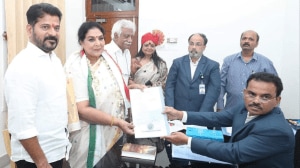In a first,Indian scientists sequence neem tree genome
Will help in developing agriculturally key compounds,pharmaceuticals
For The first time ever,researchers in India have sequenced the entire genome of neem tree (Azadirachta Indica) in its entirety.
A team of ten researchers at Ganit Labs an integrated genomics lab in Bangalore set up earlier this year under a public-private partnership between Institute of Bioinformatics and Applied Biotechnology and Strand Life Sciences,a bioinformatics company has successfully sequenced the genome of the plant known for its medicinal properties.
This is the first time the genome of a higher organism has been sequenced in India, the head of Ganit Labs Binay Panda told a press conference Thursday.
Researchers in the US and elsewhere have sequenced genomes of several complex organisms but neem plant is not one of them.
We have traditionally known the medicinal properties of neem, Panda said. Understanding its genetic complexity will help in developing agriculturally important compounds and pharmaceuticals. For instance,pesticidal compound Azadirachtin is found in neem seeds in wildly varying concentrations. With genetic understanding and engineering,Azadirachtin content in neem could potentially be increased and normalised.
The not-for-profit lab is setting up an online open access data bank where it will publish information on the genome architecture,coding parts and molecular evolution of neem plant.
The findings from the project,a results of extensive interdisciplinary collaboration,will be sent to a peer-reviewed journal for review and publication.
Translational genomics aside,the study has also thrown up scientifically significant findings. For instance,some of the genetic data suggests similarities with citrus family,which is unexpected given that neem is a woody tree, Panda said,adding that scientists were yet to understand the evolutionary context of neem tree.
Vijay Chandru,chairman and CEO of Strand Life Sciences,which built the informatics to process the huge cache of data generated during the sequencing process,said this was just a beginning. With second-generation sequencing equipment getting cheaper and smaller,India is beginning to realise the promise of genomics. By 2025,the biotech industry in India should be as big as the IT industry, he said,adding that private-public partnership would help attract much-needed talent to the sector.
Meanwhile,Ganit Labs has got its first customer: a team at IIT-Delhi that wants to outsource gene sequencing work. Also in the pipeline are projects to identify genetic markers of India-specific diseases like oral cancer and of very rare genetic diseases.
We hope our efforts will lead to an increase in the interest in science and technology among youngsters in India, Panda said.
- 01
- 02
- 03
- 04
- 05































